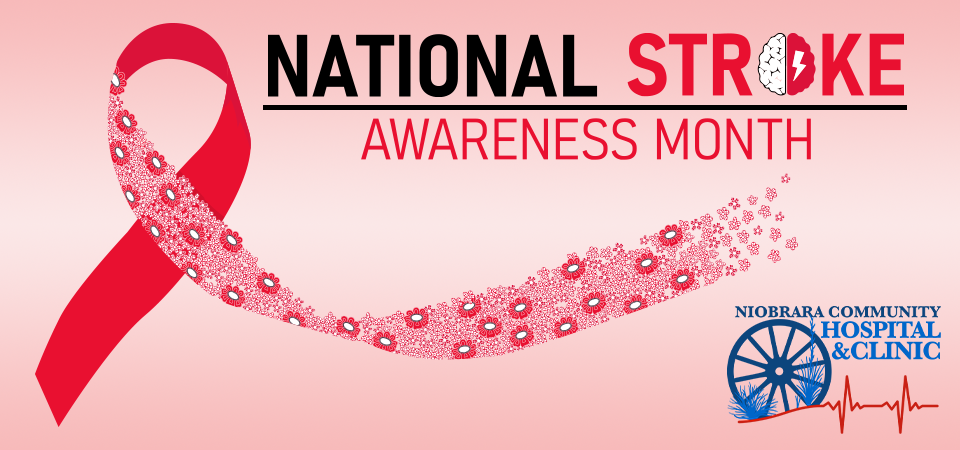Menu

May is Stroke Awareness Month, an opportunity to raise awareness about the signs and symptoms of stroke and the importance of getting timely medical attention. A stroke is a serious medical emergency and can happen to anyone, regardless of age or gender. In more rural areas, where access to healthcare may be limited, it is especially important to educate communities about stroke prevention and early detection.
What is a stroke?
A stroke occurs when blood flow to the brain is disrupted, either due to a blood clot blocking a blood vessel or a blood vessel bursting. When this happens, brain cells begin to die, which can lead to brain damage or even death. The effects of a stroke depend on the area of the brain affected and the extent of the damage.
Symptoms of a stroke
The acronym FAST is a helpful way to remember the most common symptoms of stroke:
Time to call 911
Other symptoms of stroke may include sudden numbness or weakness in the face, arm, or leg, especially on one side of the body; confusion or trouble understanding speech; trouble seeing in one or both eyes; difficulty walking or loss of balance or coordination; severe headache with no known cause.
Preventing a stroke
There are several lifestyle changes you can make to reduce your risk of stroke: Eat a healthy diet that is low in saturated and trans fats, cholesterol, salt, and added sugars Exercise regularly, aiming for at least 150 minutes of moderate-intensity activity per week. Quit smoking or using tobacco products. Limit alcohol consumption to no more than one drink per day for women and two drinks per day for men. Managing underlying health conditions, such as high blood pressure, diabetes, and high cholesterol, is also important for preventing a stroke. If you have these conditions, work with your healthcare provider to develop a plan to manage them.
Treating a stroke
Time is of the essence when it comes to treating a stroke. The sooner someone experiencing a stroke receives medical attention, the better their chances of recovery. Treatment options may include medication to dissolve blood clots, procedures to remove blood clots, and rehabilitation to help regain function and improve quality of life. Call 911 immediately if you or someone you know is experiencing symptoms of a stroke. Emergency responders can provide treatment and transport the patient to the nearest hospital equipped to handle stroke emergencies. A stroke is a serious medical emergency that can have devastating consequences. By raising awareness about the signs and symptoms of stroke and the importance of getting timely medical attention, we can help prevent them and improve outcomes for those who do experience them. Remember to eat a healthy diet, exercise regularly, manage underlying health conditions, and call 911 immediately if you suspect a stroke. Together, we can work towards a future where strokes are no longer a leading cause of disability and death.
921 S. BALLANCEE
P.O. BOX 780
LUSK, WYOMING 82225
Dr. Joleen Falkenburg
Monday and Wednesday from 8:00 AM through 5:00 PM
Tuesday and Thursday from 8:00 AM through 3:00 PM
Karen Alexander NP
Monday, Tuesday, Thursday and Friday from 8:00 AM through 5:00 PM
Wednesday from 8:00 AM through 12:00 PM
Walk-Ins Welcome